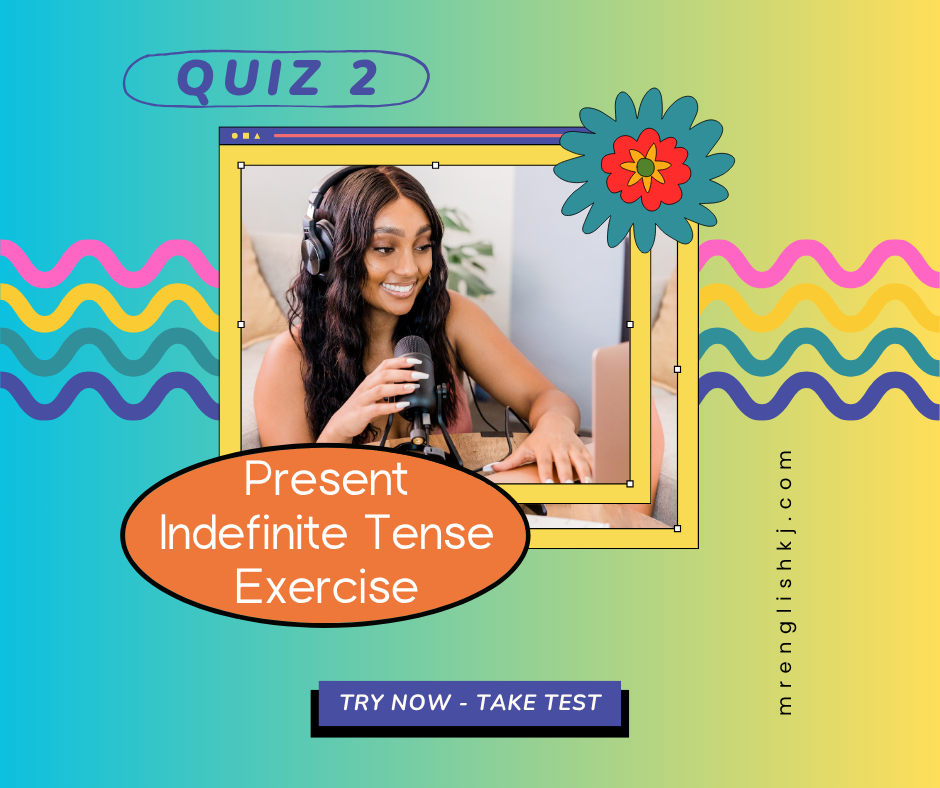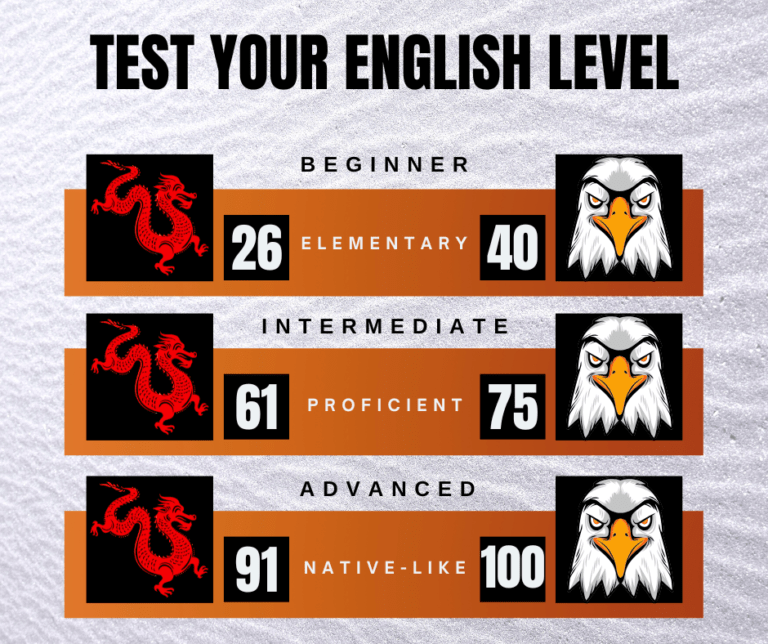
Present Indefinite Exercise 2 — Basic Present Simple Quiz
Welcome to Present Indefinite — Exercise 2, a short and friendly quiz for beginners. This practice set focuses on the Present Indefinite (also called Simple Present) tense — how we form it and when to use it. Each question has four choices and a full explanation so you learn not only the right answer but why it’s right. This is the first exercise in a series (Exercise 1, 2, 3 …) designed for steady improvement.
Short definition: Present Indefinite (Simple Present)
The Present Indefinite (Simple Present) describes habits, general truths, repeated actions, scheduled events, and states.
- Formation: base verb, verb 1st form, for I/you/we/they (e.g., I walk, they eat).
- Third person singular (he/she/it): add -s or -es on base verb (e.g., he walks, she goes).
- Use with adverbs of frequency: always, usually, often, sometimes, never.
- To learn more about Present Indefinite Tense – Visit Here
Quiz Instructions
- Read each question and choose the best answer out of four given options.
- On top, header section of the quiz, you will see the “title of the quiz,’ ‘spending-time,’ ‘value of question in points,’ and ‘number of questions.”
- Below on footer, you will see Full Screen mode. As the name suggests, it covers the whole screen. It will save a lot of your time attempting the quiz.
- You can zoom the images given in the questions.
- After submitting the quiz, you can see your score and compare with other users.
- The Full Leaderboard link will take you to a page, where you can see all users attempts.
- Below the quiz box, there are explanation of each options. You can study and try again.
- Best of Luck!
Quiz Question, Answer and Explanation
Note: Do remember in the quiz box above, the questions and options will shuffle, so they won’t have the same sequence like 1, 2, 3, or A, B, C as below.
1. We __ French at school.
A) learns
B) learn
C) learning
D) learned
Correct: B) learn
B correct — we uses base verb learn.
A incorrect — learns is for he/she/it.
C incorrect — learning is participle, not simple present finite form.
D incorrect — past tense.
2. He never __ vegetables.
A) eat
B) eats
C) is eating
D) ate
Correct: B) eats
B correct — negative habitual with adverb never uses eats for he.
A incorrect — base form wrong for third person.
C incorrect — present continuous suggests now.
D incorrect — past.
3. Do you __ tennis on Sundays?
A) plays
B) play
C) playing
D) played
Correct: B) play
B correct — question form uses base verb play with subject you.
A incorrect — plays wrong for you.
C incorrect — playing not correct in simple present question.
D incorrect — past tense.
4. She __ in a bank.
A) work
B) works
C) is work
D) worked
Correct: B) works
B correct — occupation statement for she uses works.
A incorrect — base form wrong for third person.
C incorrect — ungrammatical; correct continuous would be is working.
D incorrect — past tense.
5. The shop usually __ at 9 AM.
A) opens
B) open
C) opening
D) opened
Correct: A) opens
A correct — third person singular schedule uses opens.
B incorrect — base verb wrong for third person.
C incorrect — participle form.
D incorrect — past tense.
6. I __ to music every day.
A) listens
B) listen
C) am listening
D) listened
Correct: B) listen
B correct — I + base verb listen for habitual action.
A incorrect — listens is third person singular.
C incorrect — continuous, not simple present.
D incorrect — past tense.
7. She always __ breakfast at home.
A) have
B) has
C) having
D) had
Correct: B) has
B correct — third person singular uses has.
A incorrect — base form wrong for she.
C incorrect — participle.
D incorrect — past.
8. They rarely __ late for class.
A) come
B) comes
C) coming
D) came
Correct: A) come
A correct — plural subject they with base verb come.
B incorrect — comes is for singular subject like He, boy, girl, she, it.
C incorrect — base form plus -ing, coming is not used in simple present.
D incorrect — came is past form of verb. It is Present Tense.
9. The earth __ around the sun.
A) revolve
B) revolves
C) is revolve
D) revolved
Correct: B) revolves
B correct — general truth + third person singular revolves.
A incorrect — base form wrong for third person.
C incorrect — ungrammatical.
D incorrect — past tense.
10. You __ your teeth twice a day.
A) brushes
B) brush
C) brushing
D) brushed
Correct: B) brush
B correct — you + base verb brush for habitual action.
A incorrect — brushes for he/she/it only.
C incorrect — participle.
D incorrect — past tense.


